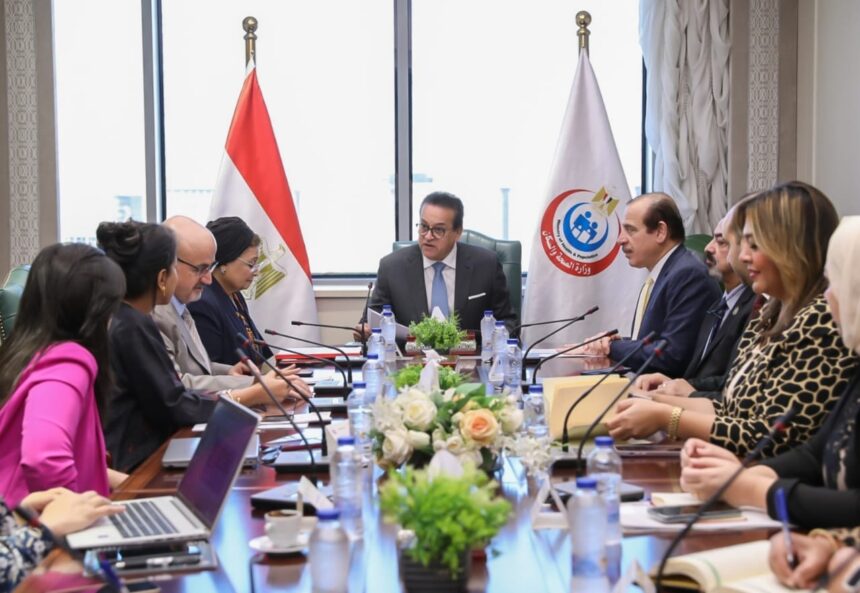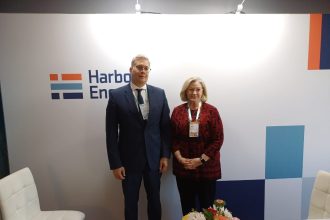Egypt’s Minister of Health and Population and Deputy Prime Minister, Khaled Abdel Ghaffar, met on Saturday with representatives from the World Health Organization (WHO) to discuss ways to strengthen pharmacovigilance systems and enhance the safety of medicines and vaccines, the ministry said in a statement.
Ministry spokesperson Hossam Abdel Ghaffar said the meeting focused on exchanging international expertise in drug and vaccine safety and reviewed the WHO’s Global Smart Pharmacovigilance (Smart PV) Strategy, launched in October 2024 in India during the International Conference of Drug Regulatory Authorities. The initiative aims to promote a risk-based approach, reinforce partnerships, and integrate pharmacovigilance into national health systems.
He added that Egypt has received an official invitation to host and participate in the regional meeting and workshops of the WHO Pharmacovigilance Group (PVG), organised by the WHO’s Regulation and Prequalification Department, scheduled for 28–29 October in Cairo. The event will include representatives from Egypt’s Drug Authority and member states’ pharmacovigilance and immunisation programmes.
According to Abdel Ghaffar, the final session will feature a high-level dialogue on a draft resolution on Smart Pharmacovigilance, expected to be presented to the World Health Assembly (WHA) in 2026 under the title: “Enhancing Smart Pharmacovigilance as a Core Element for Resilient and Sustainable Health Systems to Ensure Health for All and Everywhere.”
He noted that the WHO has proposed that Egypt lead the presentation of the draft resolution—an acknowledgment of the organisation’s confidence in Egypt’s leadership in promoting drug and vaccine safety at both regional and global levels.
The minister instructed Mohamed Hassani, Assistant Minister for Public Health Initiatives, to participate in preparing the final recommendations, with a particular focus on women of reproductive age and children. Hosting the event, he said, underscores Egypt’s commitment to global health security and to developing robust systems for monitoring the quality and safety of medical products.
Abdel Ghaffar also revealed that 405 hospitals across Egypt currently have active accounts on the international VigiFlow platform for reporting adverse drug and vaccine reactions, managed by 516 trained coordinators.
WHO Pharmacovigilance Team Lead Shanthi Pal stated that the upcoming workshops will include sessions on harmonising pharmacovigilance terminology across member states, assessing performance indicators, detecting safety signals among women and children, and sharing risk management plans. Discussions will also explore how artificial intelligence and digital tools can enhance monitoring and data analysis.
The meeting was attended by senior officials from Egypt’s Ministry of Health and the Egyptian Drug Authority, alongside WHO representatives in Egypt.




